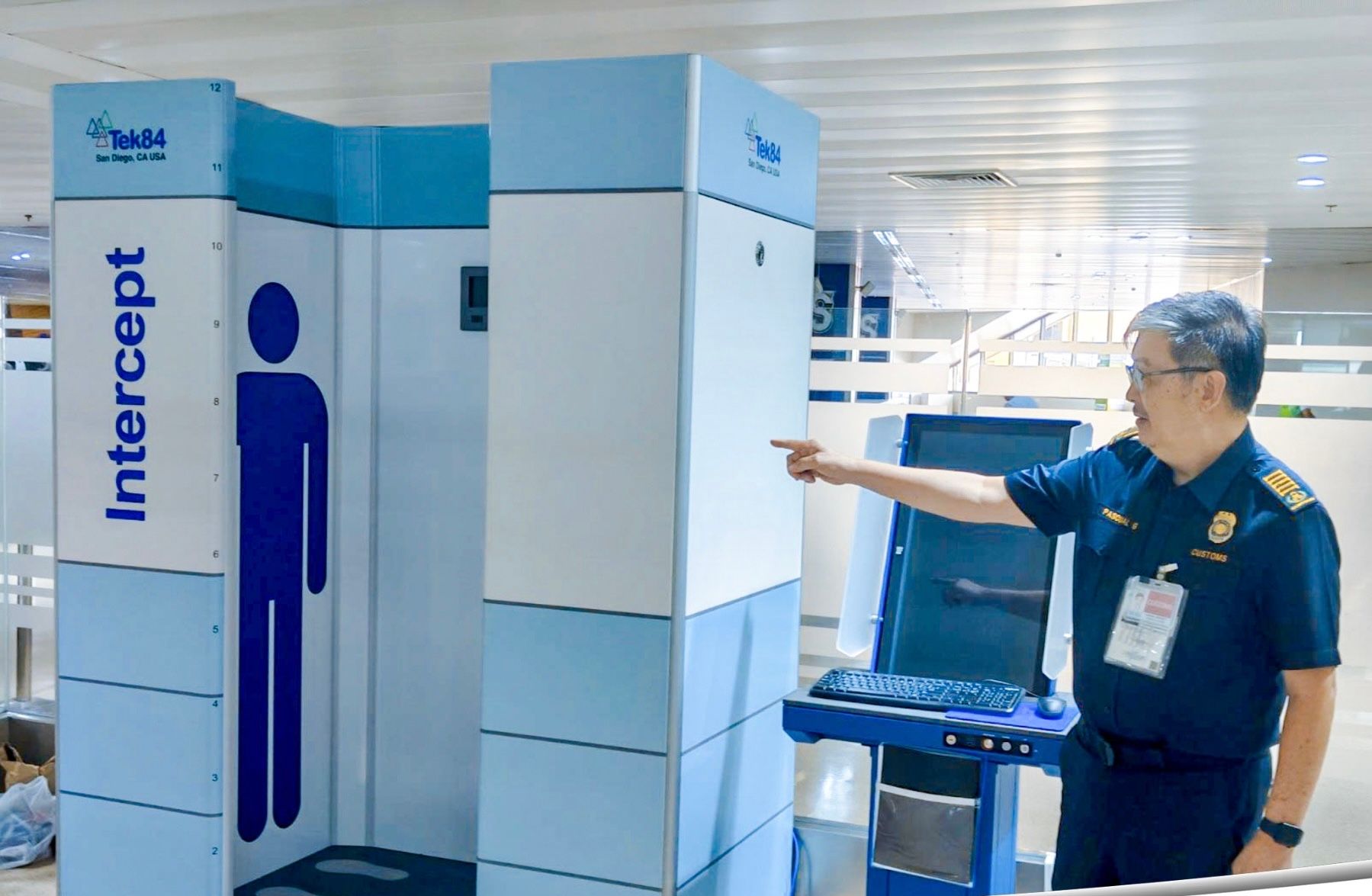The Bureau of Customs (BOC) has revamped customs procedures at key airports by introducing modern scanning machines, ensuring swift processing for air travelers.

Customs Commissioner Bienvenido Y. Rubio announced the deployment of the Rapiscan 920CT (Computed Tomography) and the Tek84 Intercept body scanners as part of the bureau's modernization efforts.
Rubio said these advanced scanning machines are designed not only to enhance the detection of illicit items but also to expedite passenger checks, reducing delays significantly.
The Rapiscan 920CT X-ray machine can identify explosives, hazardous materials, and scan baggage with large electronics and liquids without the need for removal.

Meanwhile, the Tek84 Intercept body scanner can detect both metallic and non-metallic threats, including weapons, drugs, and hidden contraband.
The BOC said the Food and Drug Administration-approved scanner can process up to 180 individuals per hour and has a thermal camera for identifying potential health issues.
Moreover, with its compact design requiring less than 6'x3' of floor space, the body scanner is not only space-efficient but also highly effective in ensuring efficient and thorough passenger screening.
Last May 17, Rubio personally inspected the recently installed Rapiscan 920CT at Mactan-Cebu International Airport (MCIA).
Additionally, the Tek84 Intercept body scanners have been deployed at NAIA Terminals 1 and 3, as well as at MCIA.
Meanwhile, the installation of Rapiscan 920CT scanners is currently in progress at Clark International Airport (CIA) Terminal 2 and Ninoy Aquino International Airport (NAIA) Terminals 1 and 3.
“The BOC plans to deploy more X-ray and scanning machines in other international airports in the future, demonstrating its ongoing commitment to improving airport security,” Rubio said.
“We are continuously updating and enhancing our machines to meet international standards and fortify our border protection measures,” he concluded.